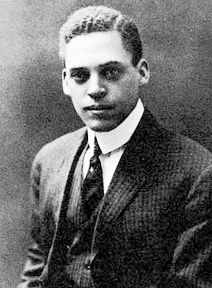Dr. Ernest Just was a pioneer in the fields of biology and chemistry at a time when it was extremely difficult for African Americans to get a scientific education. He overcame many obstacles to leave a scientific legacy for generations to come studying cell life and human metabolism. In addition, he explored egg fertilization. In fact, he was the first person to unlock the secrets of cell function and structure.
Ernest Just was born in Charleston, South Carolina in 1883 to Charles and Margaret Just. His early life was not easy. When he was just four years old his father died. In order for his family to survive, Ernest had to work as a field hand to make money.
Once the family got back on its feet again, Ernest’s mother sent him North to prepare for college. He went to the Kimball Hall Academy in New Hampshire where his brilliance shined. He completed four years of course work in only three and graduated valedictorian. He went on to Dartmouth College where he graduated in 1907 magna cum laude with degrees in Biology and History. He was the only person in his class to receive such high standing.
Right after his graduation from Dartmouth, Ernest was offered a teaching position at Howard University in Washington, DC. He took the job. Only five short years later, in 1912, he was named the Head of the Biology Department at Howard, a position that he held until his death. In 1916 he received a Ph.D. in experimental embryology with his thesis on the mechanics of fertilization.
During the course of his work, Ernest Just received the title “Scientist’s Scientist.” His humility and hard work were well respected among his fellow scientists. In fact, in 1915 when he received the National Association of Colored People (NAACP) Springarm Medal given to a person who has advanced the progress of African Americans in the past year, he wrote to tell them that he thought the award should go to someone else. It was rare that it was given to someone in the sciences but the committee believed that by his example he led everyone to know the accomplishments in the sciences that African Americans were capable of.
African Americans in the Sciences lists Ernest Just’s contributions as including, “research on fertilization, experimental parthenogenesis, hydration, cell division, dehydration in living cells, the effects of ultraviolet rays in increasing chromosome numbers in animals and in the altering the organization of the egg with special reference to polarity.” His work has made many of our modern medical advances possible. He truly was a pioneer of modern medicine.
